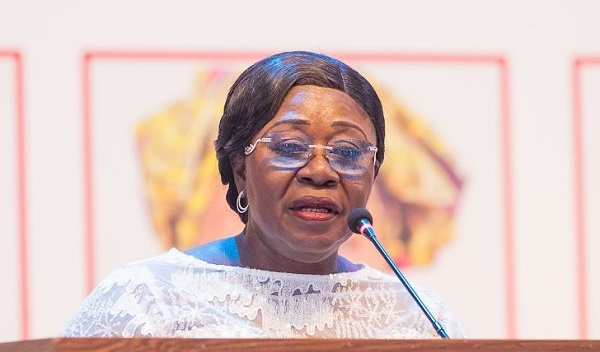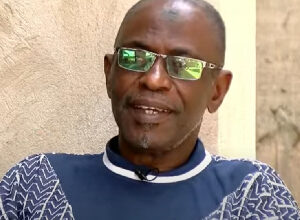
Chief of Staff, Akosua Frema Osei-Opare, has called on citizens and Civil Society Organizations (CSOs) to have confidence in state institutions tasked with investigating and prosecuting corruption-related offenses.
She emphasized the need for unity in the fight against corruption and expressed concern that “unfounded allegations” could undermine efforts to combat corruption effectively.
Speaking at a meeting organized by the Ghana Integrity Initiative (GII) in Accra to discuss the 2023 Corruption Perception Index (CPI) released by Transparency International, Madam Osei-Opare highlighted that since 2017, all corruption allegations against government officials had been promptly investigated by relevant State institutions, and the outcomes were made public.
She urged CSOs and the public not to persistently view individuals who have been cleared of corruption allegations by State institutions as guilty, emphasizing that there is no basis for such perceptions after the due investigative processes have taken place.
“Unfounded allegation of corruption and perception of wrongdoing hardly aid the fight against corruption. When corruption allegations have been investigated and findings made exonerated the subject of investigations, there is no basis for continuous suspicion of wrongdoing by civil society and other persons who have access to the media.
“We must trust institutions of State established to fight against corruption,” she said.
Madam Osei-Opare emphasized the need to strengthen the State’s capacity in dealing with corruption, acknowledging the ever-evolving nature of the problem.
“The struggle against corruption is ever evolving. Wrongdoers employ complex and sophisticated means to avoid detection,” she said.
She made this comment at a time when the Transparency International has released the latest Corruption Perceptions Index, ranking Ghana 70th out of 180 countries in terms of corruption.
Ghana scored 43 out of 100, the same since 2020. In Sub-Saharan Africa, Ghana scored better than 39 countries, including Burkina Faso (41), South Africa (41), Côte d’Ivoire (40), Tanzania (40), and Lesotho (39).
However, it ranked lower than seven countries in the region, including Mauritius (51), Namibia (49), and Sao Tome and Principe (45). The average score for African countries remains low, at 33 out of 100, with 90% of Sub-Saharan African nations scoring below 50.
Meanwhile, the Chief of Staff has disclosed that the Conduct of Public Officers Bill will soon be considered by the Cabinet after the completion of ongoing stakeholder engagements on the Bill.
She highlighted that once passed into law, the Bill would play a significant role in controlling corruption within public institutions and agencies, aiming to safeguard the public purse.
Disclaimer: Ahotoronline.com is not liable for any damages resulting from the use of this information
tigpost.co





